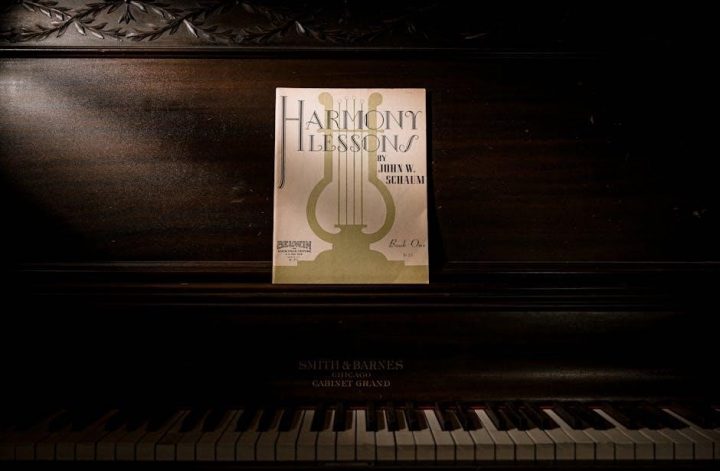Exploring ancient civilizations reveals timeless lessons in governance, culture, and philosophy, offering insights into modern challenges and societal structures.
Overview of the Topic
Lessons from antiquity encompass the study of ancient civilizations, such as Greece, Rome, and Egypt, offering insights into governance, law, culture, and philosophy. These societies laid the groundwork for modern democracy, legal systems, and cultural practices. By examining their achievements and challenges, we gain a deeper understanding of human development and the foundations of contemporary society. This topic explores how ancient wisdom continues to influence today’s world, providing valuable perspectives on governance, education, and cultural preservation.
Importance of Studying Ancient Civilizations
Studying ancient civilizations provides profound insights into the origins of governance, culture, and philosophy, shaping modern society. Ancient Greece, Rome, and Egypt laid the groundwork for democracy, law, and cultural advancements. By analyzing their successes and failures, we gain a deeper understanding of human development. This study bridges the past and present, offering timeless lessons that continue to influence contemporary thought and practices, making it essential for grasping the evolution of societal structures and human progress.
Key Lessons from Antiquity

- Democracy originated in Ancient Greece, shaping modern governance.
- Law and order were refined in Ancient Rome, influencing legal systems.
- Cultural advancements from Egypt continue to inspire art and science.
Democracy and Governance in Ancient Greece
Ancient Greece laid the foundation for modern democracy, with Athens pioneering direct democracy through the Ecclesia, where male citizens voted on laws and leadership. This system emphasized civic participation and accountability, influencing contemporary democratic principles. The concept of citizenship and the balance of power between aristocracy and the populace were key developments. Greek philosophers like Aristotle further refined these ideas, shaping political theory. These innovations remain central to understanding governance and its evolution.
Law and Order in Ancient Rome
Ancient Rome established a robust legal framework that influenced modern law. The Twelve Tables, codified in 450 BCE, ensured equality before the law, making legal procedures transparent. Roman governance relied on magistrates and consuls to enforce laws, maintaining order and justice. The concept of “pax Romana” highlighted the empire’s focus on stability and security. Roman legal principles, such as the idea of a fair trial and contractual obligations, remain foundational in contemporary legal systems, showcasing the enduring legacy of Roman law and governance.
Cultural Contributions of Ancient Egypt
Ancient Egypt made profound cultural contributions, including the development of monumental architecture like the pyramids and the Sphinx. Their sophisticated art and symbolism, such as hieroglyphs, preserved history and beliefs. Egyptian advancements in medicine, mathematics, and astronomy laid foundations for future discoveries; Mummification techniques reflected their complex religious practices andafterlife beliefs. Egyptian culture’s influence extends to modern art, architecture, and science, leaving a lasting legacy that continues to inspire and inform contemporary society and education.

Historical Context of Antiquity
Antiquity spans ancient civilizations like Egypt, Greece, and Rome, shaping early human development through advancements in governance, culture, and technology from 3000 BCE to 500 CE.
Ancient Greek Civilization
Ancient Greece, flourishing around 800–146 BCE, laid foundational contributions to Western civilization. Known for city-states like Athens and Sparta, it birthed democracy, philosophy, and the arts. Greek mythology shaped cultural narratives, while philosophers like Socrates, Plato, and Aristotle pioneered rational thought. Theatrical traditions in tragedy and comedy emerged, influencing global literature. Architectural marvels such as the Parthenon showcased artistic and engineering prowess. Greece’s legacy endures in politics, education, and culture, illustrating its enduring impact on modern society and thought.
Roman Empire and Its Legacy
The Roman Empire, spanning from 27 BCE to 476 CE, left an indelible mark on law, governance, and architecture. Its legal system, rooted in the Twelve Tables, influenced modern jurisprudence. The concept of a republic and representative governance originated in Rome. Architectural innovations like aqueducts and roads demonstrated engineering prowess. Latin, the empire’s language, shaped many modern tongues. The Pax Romana fostered trade and cultural exchange, while Roman citizenship ideals laid groundwork for civic identity. Its legacy endures in law, politics, and culture, making it a cornerstone of Western civilization.
Egyptian Society and Religion
Ancient Egyptian society was deeply hierarchical, with the pharaoh at the pinnacle, believed to be a divine intermediary. Religion was central to daily life, revolving around a complex pantheon of gods like Ra, Isis, and Osiris. The concept of ma’at—balance and order—guided moral and legal frameworks. Elaborate temples and tombs reflected their belief in the afterlife, with mummification and funerary practices aimed at ensuring immortality. The Nile River’s annual flooding sustained agriculture, reinforcing the connection between nature, religion, and survival. Egyptian culture’s legacy endures in art, architecture, and spiritual symbolism.

Education and Learning in Antiquity
Ancient education emphasized philosophy, rhetoric, and the study of written records, with etymology and word origins playing a key role in understanding and preserving knowledge.
Role of Philosophy in Ancient Education
Philosophy played a central role in ancient education, fostering critical thinking, ethics, and intellectual growth. It emphasized reasoning, debate, and the pursuit of wisdom, shaping minds to address complex societal issues. Philosophers like Socrates, Plato, and Aristotle developed methodologies that encouraged questioning and dialogue, laying the groundwork for modern educational practices. This approach not only cultivated individual thought but also promoted the development of science, politics, and the arts, leaving a lasting legacy in how knowledge is acquired and applied.
Development of Written Records
The development of written records in antiquity marked a pivotal shift from oral traditions to documented histories. Early civilizations used writing to preserve laws, myths, and knowledge, ensuring their legacy endured. Etymology, the study of word origins, reveals how language evolved through written texts. These records not only chronicled events but also facilitated education and governance, laying the foundation for modern learning and cultural preservation. The meticulous study of ancient scripts continues to illuminate the past, offering insights into humanity’s intellectual and societal progress.
Etymology and Word Origins
Etymology, the study of word origins, reveals how language evolves over time, reflecting cultural and historical shifts. Ancient texts show how words gained meaning through usage in myths, laws, and daily life. For example, the concept of “soul” in Russian proverbs highlights deep cultural significance. By tracing word roots, etymology bridges past and present, aiding in understanding ancient texts and modern language. This linguistic archaeology provides insights into how civilizations expressed ideas, preserving their legacy in the words we use today.
Modern Applications of Ancient Knowledge
Ancient wisdom inspires modern solutions, from governance models to technological innovations, proving the enduring relevance of antiquity in addressing contemporary challenges and fostering cultural preservation.
Lessons for Modern Governance
Ancient civilizations offer valuable insights into governance, with systems like Athenian democracy and Roman law influencing modern political structures. These models emphasize citizen participation, rule of law, and balanced power, providing frameworks for addressing contemporary challenges. For instance, the concept of direct democracy in ancient Greece inspired modern referendums, while Roman legal principles underpin many legal systems today. These lessons highlight the importance of accountability, transparency, and equitable representation in governance, serving as timeless guides for shaping effective and just societies in the present and future.
Technological Advancements Inspired by Antiquity
Ancient innovations have sparked modern technological breakthroughs, with designs like the Antikythera mechanism inspiring precision engineering. Roman concrete’s durability has led to advanced materials science. Additionally, ancient water management systems and architectural marvels, such as aqueducts and domes, influence contemporary engineering solutions. These historical advancements demonstrate how studying antiquity can drive innovation, offering sustainable and efficient answers to modern challenges, while preserving the ingenuity of our ancestors for future generations.
Cultural Preservation and Heritage
Ancient civilizations have left a rich legacy of cultural treasures, from Egyptian hieroglyphs to Greek philosophy and Roman law. These artifacts and texts are not only preserved in museums but also studied to understand their historical context. Language and traditions are also vital, with Latin and Greek roots influencing modern languages. By examining these elements, we can bridge the past and present, ensuring the heritage of antiquity remains relevant and accessible for future generations to appreciate and learn from.

Challenges in Studying Antiquity
Interpreting ancient texts and accessing historical documents pose significant challenges due to language barriers, fragmented records, and limited archaeological evidence, complicating our understanding of past civilizations.
Interpreting Ancient Texts
Interpreting ancient texts presents challenges due to language evolution, fragmented records, and cultural context gaps. Scholars must decipher archaic terms, navigate translation ambiguities, and consider historical biases. Additionally, the brevity of some texts leaves room for multiple interpretations, requiring a multidisciplinary approach to uncover accurate meanings. Despite these hurdles, advancements in philology and digital tools are aiding in more precise translations, ensuring ancient wisdom remains accessible and relevant for modern study and application.
Accessibility of Historical Documents
Accessing historical documents is crucial for understanding antiquity, but challenges persist. Many ancient texts are fragmented or lost, while others remain untranslated or archived in inaccessible locations. Digital platforms and academic collaborations are improving accessibility, offering online archives and translated resources. These efforts enable scholars and students to explore historical records, fostering a deeper connection with ancient civilizations and their contributions to modern society.
Integrating Ancient Wisdom into Contemporary Education
Integrating ancient wisdom into modern education bridges the gap between past and present, enriching curricula with timeless insights. Study guides and digital resources make historical knowledge accessible, while etymology and word origins highlight language evolution. Interactive methods, such as virtual classroom exchanges and project-based learning, engage students in exploring antiquity’s relevance. By connecting ancient concepts to contemporary issues, educators foster critical thinking and cultural appreciation, demonstrating how the lessons of antiquity remain vital in shaping modern understanding and problem-solving abilities.
Ancient wisdom offers timeless lessons, enriching our understanding of governance, culture, and philosophy. Studying antiquity’s insights fosters critical thinking and appreciation for humanity’s shared heritage and evolution.
Final Thoughts on the Relevance of Antiquity
The study of antiquity provides enduring wisdom, offering insights into human nature, societal development, and cultural evolution. By examining ancient civilizations, we gain a deeper understanding of modern challenges and opportunities.
Lessons from antiquity highlight the importance of critical thinking, ethical governance, and the preservation of heritage. These timeless principles inspire personal growth and foster a connection between past and present, encouraging us to learn from history while shaping a better future.
Encouraging Further Exploration
Antiquity offers a rich tapestry of knowledge, inviting deeper exploration into history, culture, and philosophy. By studying ancient civilizations, learners gain insights into the evolution of ideas and practices that shape modern life.
Engaging with primary sources, such as texts and artifacts, fosters critical thinking and appreciation for heritage. Encouraging further exploration of antiquity inspires a lifelong curiosity about human achievements and challenges, bridging the past with the present for a meaningful future.




